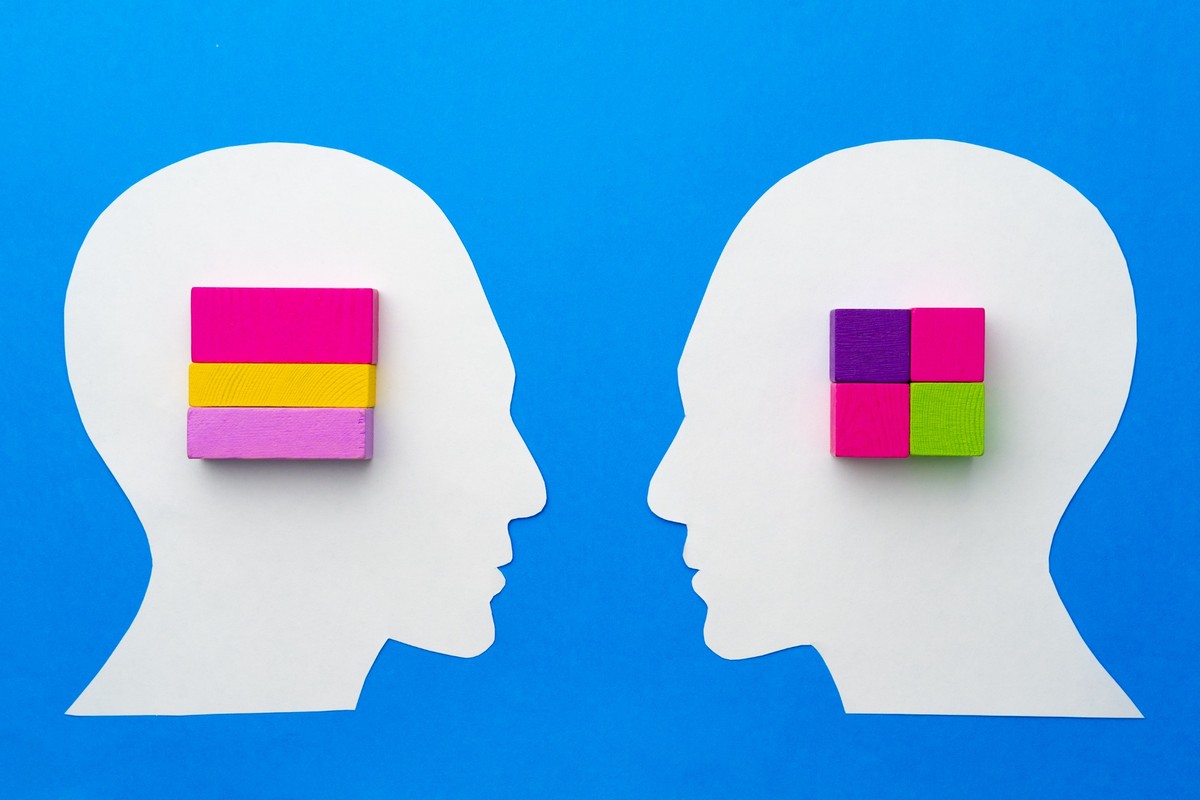
Long-Term Effects of Drugs and Addiction
Understanding the Long-Term Effects of Drugs on
Mental and Physical Health
As Medline Plus notes, drugs are chemical substances that change the way your body and mind work. There are a variety of legal and illegal drugs that can contribute to changes in the body and brain. Prescription drugs, over-the-counter medicines, alcohol, and tobacco are examples of legal substances. Whereas, cocaine, heroin, and methamphetamine are examples of illegal substances.
However, the legality of a substance does not mean that the substance cannot be abused. Many legal substances, like prescription drugs, which include prescription opioids and stimulants, can lead to drug addiction. When you engage in drug misuse or substance abuse, you are at an increased risk of adverse health effects.
However, when the media talks about the long-term effects of substance abuse, they often focus on the physical health or cosmetic risk factors. For instance, the media frequently presents images of people with premature aging, scars, skin discoloration, hair loss, and tooth decay and loss. Although the cosmetic health issues caused by drug abuse are important, there are other less obvious but harmful health effects. Drug addiction has long-term effects that are detrimental to your physical and mental health.
What Are the Long-Term Effects of Drugs?
In addition to the long-term effects of drug abuse on your health, your drug use can also lead to long-term health problems for your loved ones. According to the National Institute on Drug Addiction (NIDA), substance abuse can have far-reaching and severe consequences for your loved ones, including infectious diseases, cancer, and mental health conditions. Some of the ways your substance abuse can put your loved one at an increased risk for health issues include:
- Drug use during pregnancy or breastfeeding
- Neonatal abstinence syndrome (NAS)
- Babies can experience withdrawal symptoms, tremors, seizures, and sleep and feeding issues
- Children will experience developmental issues related to behavior, attention, and thinking
- Neonatal abstinence syndrome (NAS)
- Secondhand smoke
- Increased risk for heart disease
- Greater risk for lung cancer
- Risky behaviors
- Injection-based drug use leads to an increased risk of HIV
- Injection drug use can lead to severe and life-threatening infections
- Increases the spread of hepatitis C
- Lead to endocarditis
- A life-threatening inflammation of the inner lining of your heart's chambers and valves
- Can cause cellulitis
- A skin infection that presents with redness, swelling, tenderness, and pain
- Increased risk of intoxication that can contribute to risky sexual behaviors
- Sexually transmitted infections (STIs) and sexually transmitted diseases (STDs)
- Pregnancy
- You are at an increased risk of unsafe driving
- Can contribute to life-threatening injuries and death for you and others
However, the long-term use and abuse of prescription drugs, illegal drugs, and other substances not only lead to long-term mental illness and physical health issues but also short-term effects from drug abuse and substance abuse that can be harmful to your health and well-being.
Defining Long-Term Effects
What are the major differences between the short-term and long-term effects of drug abuse? It is not uncommon for people to view prescription drugs and even substances like alcohol as safe. When they are prescribed and used correctly, like prescription opioids for cancer pain, the effects of the drugs can be beneficial. Moreover, certain medications are designed to support both physical and mental health, leading to a higher quality of life. However, even prescription drugs can have a variety of short-term and long-term health side effects.
Beyond common prescription drug side effects, misuse and substance abuse can contribute to short-term and long-term changes to the brain and body. As NIDA states, your brain is the most complex organ in your body, influencing how you think, feel, and behave. Your brain has billions of cells, called neurons, that send and receive information from each other to help coordinate and perform specific functions throughout your body. Drug use impedes the way your neurons send, receive, and process signals through your neurotransmitters.
Drugs mimic natural neurotransmitters to enact different functions, like releasing significantly more dopamine for pleasure. However, because drugs do not activate neurons in the same way as a natural neurotransmitter, they can lead to abnormal messages and disrupt normal communication between your neurons. For example, opioids can disrupt different parts of the nervous system, like the brain stem, which controls critical functions for life, like your heart rate, breathing, and sleep. The disruption and override of your nervous system from opioids can be seen in opioid-related overdoses, as they can lead to depressed breathing and, thus, death. Therefore, it is important to be aware of the ways that drug use and substance use disorder can harm your health.
Listed below are some of the similarities and differences between drug addiction's long-term effects and short-term effects:
- Short-term effects of drug use
- Hangover
- Withdrawal symptoms
- Anxiety
- Panic attacks
- Depression
- Irritability
- Hallucinations
- Paranoia
- Increased heart rate
- Euphoria
- Increased blood pressure
- Impaired cognitive functions
- Poor decision-making
- Decreased coordination
- Increased risk for accidents and injuries
- Long-term effects of substance abuse
- Worse symptoms or increased risk for the development of mental health conditions
- Depression
- Anxiety
- Schizophrenia
- Psychosis
- Paranoia
- Hallucinations
- Stomach issues
- Organ damage
- Heart
- Lungs
- Liver
- Kidney
- Increased risk for chronic health issues
- Heart disease
- Liver disease
- Respiratory disorders
- Cognitive Impairments
- Memory problems
- Difficulty paying attention
- Poor decision-making
- Impaired social functioning
- Strained relationships
- Conflict
- Alienation
- Social isolation
- Increased risk for unemployment and being unhomed
- Worse symptoms or increased risk for the development of mental health conditions
In addition to common mental health and physical health issues like anxiety and organ damage, the health effects of drug abuse are also based on the type of drug used.
Common Health Problems Linked to Long-Term Drug Use
How drug addiction impacts your mental and physical health is based on the type of drug and other individual factors. Some factors that contribute to the effects of drug use include:
- Body size
- Substance quantity
- Strength of the substance
- How many different drugs have been taken close to or together
- Mood
- The environment you live in
Beyond physical, social, and environmental factors, some of the common health problems that arise with long-term drug use include:
- Physical health issues
- Heart disease
- Liver disease
- Lung cancer
- Weight loss
- Mental health conditions
- Depression
- Anxiety
- Psychosis
- Schizophrenia
- Cognitive function impairments
- Memory problems
- Impaired nervous system function
- Poor impulse control
- Social impairment
Your health can be further complicated by the type of drug you use. Understanding the various health effects associated with different substances can provide insight into the physical and psychological challenges you may be facing.
Long-Term Effects of Specific Substances
The long-term effects you experience with opioids are different from the health effects of stimulants and benzodiazepines. For instance, the long-term effects of alcohol abuse are often associated with liver disease, while cannabis is not. Listed below are some drug addiction long-term effects of opioids, prescription drugs, methamphetamine, cocaine, cannabis, and benzodiazepines.
Opioids and Prescription Drugs
- Risk of heart failure
- Heart attack
- Respiratory issues
- Sleep apnea
- Respiratory depression
- Risk factors for nervous system issues
- Hypoxia increases your risk for brain damage, coma, and death
- Kidney diseases
- Liver disease
- Lung disease
- Stomach issues
- Nausea
- Vomiting
- Cramping
- Bloating
- Constipation
- Withdrawal symptoms
- Impact on dopamine and neurotransmitter balance
- Mental health issues
- Depression
- Suicide
- Impulsivity
- Poor decision-making
- Executive dysfunction
- Increased risk for infections
Stimulants (Methamphetamine and Cocaine)
- Methamphetamine increases the risk of insomnia
- Increased heart rate and blood pressure
- Heart attack
- Chest pain
- Cardiomyopathy
- Seizures
- Stomach issues
- Ulcers
- Poor appetite
- Nutritional deficiencies
- Severe weight loss
- Psychosis
- Increased risk for aggressive or violent behavior
- Long-lasting brain changes
- Impaired cognitive function
- Poor impulse control and decision-making
- Increased distractability
- Decreased motor control
- Attention and memory problems
- Increased risk of stroke and seizures
- Long-term chronic cocaine use is associated with movement disorders
- Snorting cocaine can lead to long-term respiratory issues
- Chronic runny nose
- Nosebleeds
- Loss of smell
- Smoking cocaine is a risk factor for asthma and frequent infections
Cannabis (Marijuana)
- Potential for chronic bronchitis
- Increased heart rate and blood pressure
- Heart disease
- Lung disease
- Asthma
- Lung, throat, mouth, and tongue cancer
- Mental health issues
- An increased risk for psychosis
- Anxiety
- Paranoia
- Depression
- Schizophrenia
- Starting use in adolescence increases the risk of neuropsychological impairments
- Learning deficits
- Memory problems
- Executive dysfunction
- Decision-making
- Increased risky behavior
Benzodiazepines
- Physical dependence
- Cognitive decline
- Motor control
- Attention and concentration
- Problem-solving
- Sensory processing issues
- Long-term challenges in managing anxiety and stress
- Withdrawal symptoms
- Seizures
Additionally, chronic relapse is often a common feature of substance abuse. Thus, understanding the risk factors for chronic relapse is invaluable to drug addiction treatment and sustained recovery. Some of the risk factors for chronic relapse include:
- Unaddressed triggers and cravings
- Stress
- Relationship conflict
- Contact with family and friends who still abuse substances
- Lack of a social support network
- Peer pressure
- Low self-esteem
- Lack of motivation
- Boredom
- Chronic pain
- Insufficient adaptive coping skills
- Feeling overwhelmed by guilt and shame in recovery
- Self-isolation
- Unaddressed mental illness
Relapse prevention is crucial to addiction treatment programs to support healing and sustained recovery. With relapse prevention, you can build a mutually supportive community and unlock tools for self-efficacy and self-regulation. Another important element of holistic and comprehensive treatment programs is dual diagnosis treatment.
Mental Health and Addiction: The Co-Occurring Challenge
People often slip through the cracks for substance use disorder treatment and long-term recovery because of co-occurring conditions. Many traditional treatment programs only focus on treating substance abuse or mental health conditions. However, as the Substance Abuse and Mental Health Services Administration (SAMHSA) states, approximately 21.5 million adults in the United States have a co-occurring disorder. Unaddressed substance abuse or mental health disorders on their own are detrimental to your well-being. Together, unaddressed co-occurring disorders can be devastating.
How Substance Use Impacts Mental Health Long-Term
Some of the ways co-occurring disorders can be devastating to your health and well-being include:
- The development or worsening of mental health disorders
- Post-traumatic stress disorder (PTSD)
- Bipolar disorder
- Chronic stress
- Encourages self-medication to alleviate or suppress mental health symptoms
- Increase suicidal ideation
- Impairment of life skills
- Your children are at an increased risk of substance use disorder and mental health conditions
- Greater physical health risks
- Encourages avoidance behaviors that exacerbate mental health symptoms
- Less likely to reach out for support
- Self-isolation
Despite the prevalence of co-occurring conditions, many people experience barriers to care to treat and heal as a whole person. The complexities of multiple disorders, stigma, and low awareness of co-occurring disorders are some of the barriers that can impede treatment. Therefore, holistic and trauma-informed care in dual diagnosis treatment offers you and or your loved one the space, support, guidance, and tools to thrive in treatment and recovery.
The Role of Dual Diagnosis Treatment
An invaluable and important part of dual diagnosis treatment is the simultaneous treatment of substance use disorder and co-occurring mental health disorders. Listed below are some of the treatment tools utilized in dual diagnosis treatment to support healing and long-term recovery:
- Behavioral therapies
- Cognitive-behavioral therapy (CBT)
- Helps patients learn how to cope with and change unhealthy thinking patterns
- Dialectical behavior therapy (DBT)
- Can help patients reduce maladaptive coping strategies
- Cognitive-behavioral therapy (CBT)
- Inpatient and outpatient treatment programs
- You can receive support with treatment, therapy, medication, and support in a setting that best supports your individual needs and experiences
- Medication
- Your personalized treatment program may include medication assistance to help alleviate substance abuse and or mental illness symptoms
- Some medications can effectively treat the symptoms of different types of drugs like opioids and alcohol abuse
- Different medications can help lessen the distressing symptoms of one or more mental health conditions
- Your personalized treatment program may include medication assistance to help alleviate substance abuse and or mental illness symptoms
- Support groups
- Offers emotional and social support to maintain recovery
- Helps you address the expected and unexpected challenges that arise in your daily life post-treatment
Through the support of dual diagnosis treatment, you can increase motivation and self-efficacy, reduce relapse, and improve your quality of life. At Spark Wellness, we are committed to providing individualized, evidence-based therapies to address both substance abuse and mental illness.
Bridging Treatment to Real Life at Spark Wellness
At Spark Wellness, we are dedicated to delivering evidence-based and holistic care through our outpatient programs. Whether you need an intensive outpatient program (IOP) or Day Treatment, we can tailor a treatment plan to meet you where you are in your recovery journey. Some of the support tools you can find in our IOP include:
- In-person outpatient care
- Virtual IOP
- Structured therapy
- Individual therapy
- Family therapy
- Group therapy
- Yoga
- Nutrition
- Meditation
- Expressive therapies like art therapy
- Spiritual care
- Stress management
- Relapse prevention strategies
Day Treatment offers similar support features to IOP. Both offer flexible day and evening schedules tailored to patient needs. However, in addition to structured individual and group therapy, Day Treatment provides a more intensive treatment program. With a higher level of care, you can find the personalized care you need to address behavioral health, mental health, and substance abuse to dismantle the underlying challenges of multiple conditions. You can build confidence and independence to establish long-term recovery through the patient-centered integration of therapies like CBT, DBT, EMDR, mindfulness, and somatic experiencing.
Whether you seek IOP or Day Treatment, you will learn how to build life and coping skills, emotional resilience, and rebuild trust in yourself and your relationships. At the core of our treatment programs is flexible and supportive care in a safe environment, where you can heal while maintaining your family, work, and/or school obligations. You can access a variety of programs, therapies, and modalities, including life skill training, trauma-specific therapy, and yoga, for a comprehensive, whole-person approach. Furthermore, if you are facing challenges with stable housing during your recovery, we also offer structured sober living to provide greater stability as you heal. Through our supportive sober living homes, you can continue to strengthen your recovery outside clinical settings.
Frequently Asked Questions (FAQs)
Looking for a treatment program that best fits you and your loved one's needs can feel overwhelming. At Spark Wellness, we help bridge the gap between traditional treatment programs and real-life application to help each patient spark change in their lives for long-term recovery. We are here to help answer questions, offer guidance and support, and foster comfort, relaxation, and freedom for whole-person healing.
Does Spark Wellness provide dual diagnosis treatment?
Yes, we specialize in dual diagnosis treatment to help patients dismantle the underlying issues that have contributed to their substance use disorder and other co-occurring mental health disorders.
What types of detox services are available?
At Spark Wellness, we offer detox support through our ambulatory detox treatment program. In our evidence-based outpatient detox program, patients can access services such as medication-assisted treatment and medication management within a flexible and accessible treatment setting.
How are housing and sober living accommodations structured?
We offer a structured and connection-driven sober living program to support stability in recovery. In our sober living program, patients can find peer support, guidance, and accountability in gender-specific housing for men and women. Whether you need help seeking higher education, securing employment, establishing permanent housing, or building life skills for daily life, our structured and supportive sober living program offers a strong foundation for lasting recovery.
The long-term effects of substance abuse are detrimental to your physical and mental health. Life-threatening health issues like heart disease, respiratory disorders, and stroke contribute to a low quality of life and shortened lifespan. The addition of impaired cognitive function and the development or worsening of co-occurring mental health disorders can further impede your health, well-being, and relationships. Thus, access to comprehensive and holistic evidence-based treatment is invaluable to helping you heal as a whole person. At Spark Wellness, we are committed to providing holistic, patient-centered care through various therapies and modalities, including dual diagnosis treatment, expressive therapies, and yoga to support sustained recovery. Call us at (971) 359-4753 to spark change in your life with flexible and compassionate care.
Recovery articles for you

Anxiety vs Depression: How to Tell the Difference and Why It Matters for Treatment

When Weekly Therapy Isn’t Enough: Signs You May Need a Higher Level of Mental Health Care



